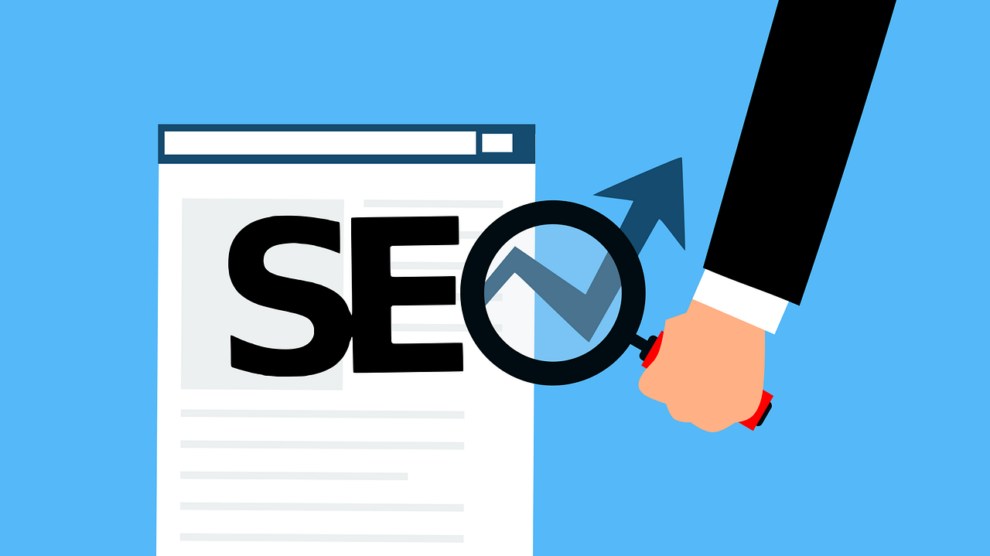SEM VS SEO, which is the best marketing strategy? Is there even a difference between SEM and SEO?
Indeed these two marketing strategies seek to fulfill the same outcome, driving quality leads to your business, but that’s as far as the similarities go. Here are five major differences between the two so as to settle the SEM VS SEO debate once and for all. But first, what do these two acronyms mean?
• SEM: Search Engine Marketing is an umbrella term used for all paid methods of driving traffic to your website.
• SEO: Search Engine Optimization mainly deals with improving your visibility on the internet by implementing strategies that make search engines deem your site or page as valuable enough to place in the top ranks of SERPs. This drives organic traffic, as opposed to paid traffic that comes through SEM.
Let’s take a closer look at these two powerful marketing strategies and see their major differences and how you can effectively use each one.
SEM VS SEO – Understanding the 5 Differences
Let’s go ahead and delve into the 5 differences between SEM and SEO. Understanding these differences will help you carry out an effective marketing strategy to get the right kind of traffic you need to your website.
1. SEO Needs a Website While SEM Doesn’t
When it comes to delineating SEM from SEO, one major factor that helps separate the two is the fact that SEO is heavily dependent on your website, while an SEM campaign doesn’t need a website for it to succeed (although a good website is highly recommended).
How does SEO work you ask? It’s simple really (theoretically) but a bit tricky if you don’t have the required knowledge or the time to put in. And that is why it’s advisable to outsource this part of your marketing to a reputable SEO agency that can help increase your visibility and conversions.
So how does SEO work? SEO involves optimizing many aspects of your website to increase its relevance and authority in the eyes of search engines. This is achieved by optimizing the two main pillars of SEO – On-Page SEO and Off-Page SEO.
On-page SEO deals with everything you can control on your website, hence the name “On-Page”. This involves many things that have to be expertly crafted, such as:
• Content
• Keywords
• Meta tags
• Internal and external links
• Rich snippets
• Optimizing for voice search
And many other factors that will make your website and its content stand out from the competition.
Off-Page SEO, on the other hand focuses on factors that are not on your website, like building backlinks and getting mentions and shares for your content. In a nutshell, Off-Page SEO is mainly about building relationships with other sites – another reason why you should outsource your SEO to those who already have established relationships and are experts at building new ones.
As for SEM, you can carry out a campaign even if you don’t have a proper website. That is, as long as you have somewhere to direct the traffic, say a landing page. Needless to say, it’s best you have a website. But unlike SEO, the quality, relevance, and authority of your website won’t affect your SEM campaign as this is affected more by your ad’s quality score and your bid. Whatever the case, once you pay, you will appear on the SERP pages.
2. SEM Gets Faster Results than SEO
One of the major disadvantages of SEO is that it is painstakingly slow when it comes to seeing tangible results. This is because creating amazing SEO optimized content, building quality links, and other factors out of your control that boost your SEO (like linkless backlinks) take time. And while you wait for the results, you can’t analyze your progress in real time. Ranking on Google is not automatic. It takes time. Even a tweak in your SEO strategy will take time to start showing results, as long as a month, although definite times are not known.
SEM, on the other hand, is a whole different game. The moment you set up your campaign and your analytics tools you can start measuring your progress immediately. And unlike SEO, a well-executed SEM campaign can start giving you positive results immediately because your placement on the SERPs is guaranteed.
This is why if you are a startup and looking to gain visibility (and sales) quickly, then SEM will be your immediate choice. But if you are looking to stay in the game long term, you must also include an SEO strategy.
3. SEO Gives You Longer Lasting Results than SEM
When people ask which of the two strategies to implement, they expect a clear-cut answer. Unfortunately, it’s not that simple. There are many factors to consider, and one of them is your long-term plans for your business, landing page, product page, or whatever you want to drive traffic to.
If you are looking for long-term, sustainable results, this is where SEO outshines SEM. When comparing SEM and SEO differences, this is one you can’t overlook, the fact that SEO gives you longer lasting results than SEM. In fact, SEO will keep giving you traffic for life as long as you don’t take down your website or violate an SEO principle and incur Google’s wrath (this is why you need an SEO professional taking care of SEO for you).
On the other hand, SEM will only give you results for as long as you keep paying for the opportunity to stay on the SERP’s top pages. Once you choose to end the campaign, the traffic stops coming. And because SEM is a bidding system, that place is not entirely guaranteed as anyone can outbid you at any time.
In short, SEO has the advantage over SEM in this area in that the work you put in once will keep giving you results, whereas with SEM, the moment you stop the campaign, the results also stop.
4. SEO has a Broader Target Audience Unlike SEM which is Ultra-Specific
One similarity between SEO and SEM is that both marketing strategies are about getting traffic. But even then, the kind of traffic is not entirely the same.
SEO targets anyone interested in the keyword you are ranking for. Whether they are still researching your product or services or ready to buy, SEO is a big net that you use to draw them in. This is why content produced for SEO purposes serves three main purposes:
• Brand awareness
• Product information
• Soft selling
In short, it caters to everyone at every stage of the buying journey.
SEM, on the other hand, is like a fishing pole, if we can continue using that analogy. Instead of drawing in everyone it can, SEM targets those who are ready to make a purchase. It has an ultra-specific target audience. Planning a SEM strategy requires that you be precise with all components of the strategy as you will only want to attract prospects who are ready to make a commitment, and as such, your content must push for a sell. The reason is very simple. Every click in an SEM campaign will cost you money, an average of $2 per click across the board.
To sum this section up, SEO is a net that draws in all types of people while SEM is a fishing pole that seeks to bring in ready buyers.
Sam Ovens is a great example. He’s a millionaire consultant (in both senses) whose target audience is people who want to escape the rat race for the good life. Sam used SEM to build his consulting company from scratch to what it is today – a massive company that has produced 24 millionaires, 450 6-figure earners, and a whole lot more success stories (like 3,000 people who have managed to quit their jobs and live their dreams).
5. SEO Costs Less to Implement Compared to SEM
When it comes to the differences between SEO and SEM, it’s important to note that there is a great difference in the cost of implementing the two strategies, with SEO being the cheaper to implement and run than SEM. Not only is SEO cheaper to implement than SEM, but it also has an edge over SEM in that it drives more traffic.
The reason for the disparity in the cost of SEM VS SEO is simple. SEO is free or organic traffic while SEM is paid traffic. Everyone who visits your website through a SEM campaign costs you something, whereas everyone who comes to your website through a SEO campaign costs you nothing – for life.
Jacob McMillen is a great example of a successful SEO campaign that cost nothing but brought in hundreds of thousands in business. By implementing an effective SEO strategy, he transitioned himself from a content mill slave to a successful marketing copywriter who is sought out by many big companies. Initially an unknown entity in his early days, he now ranks front-page for the key phrase website copywriter.
This, in many people’s eyes, is the major difference between SEM and SEO – the fact that SEO is a source of organic (free) traffic while SEM is paid traffic. This is why, for you to get a good ROI from your SEM campaign, you need to implement paid search best practices that will increase your chances of attracting the right traffic.
SEM and SEO – Two Sides of the Same Coin
When it comes to the SEM VS SEO debate, at the end of the day, they are as inseparable as the two sides of a coin. Though they have different methods of execution, they both serve the same purpose – giving you exposure and driving sales. And like the prongs of a fork, what one misses, the other is likely to get. But be sure not to go it alone as there are many landmines you can set off if you don’t them both properly. Let the experts take this digital marketing load off your shoulders while you do what you do best – running your business.





